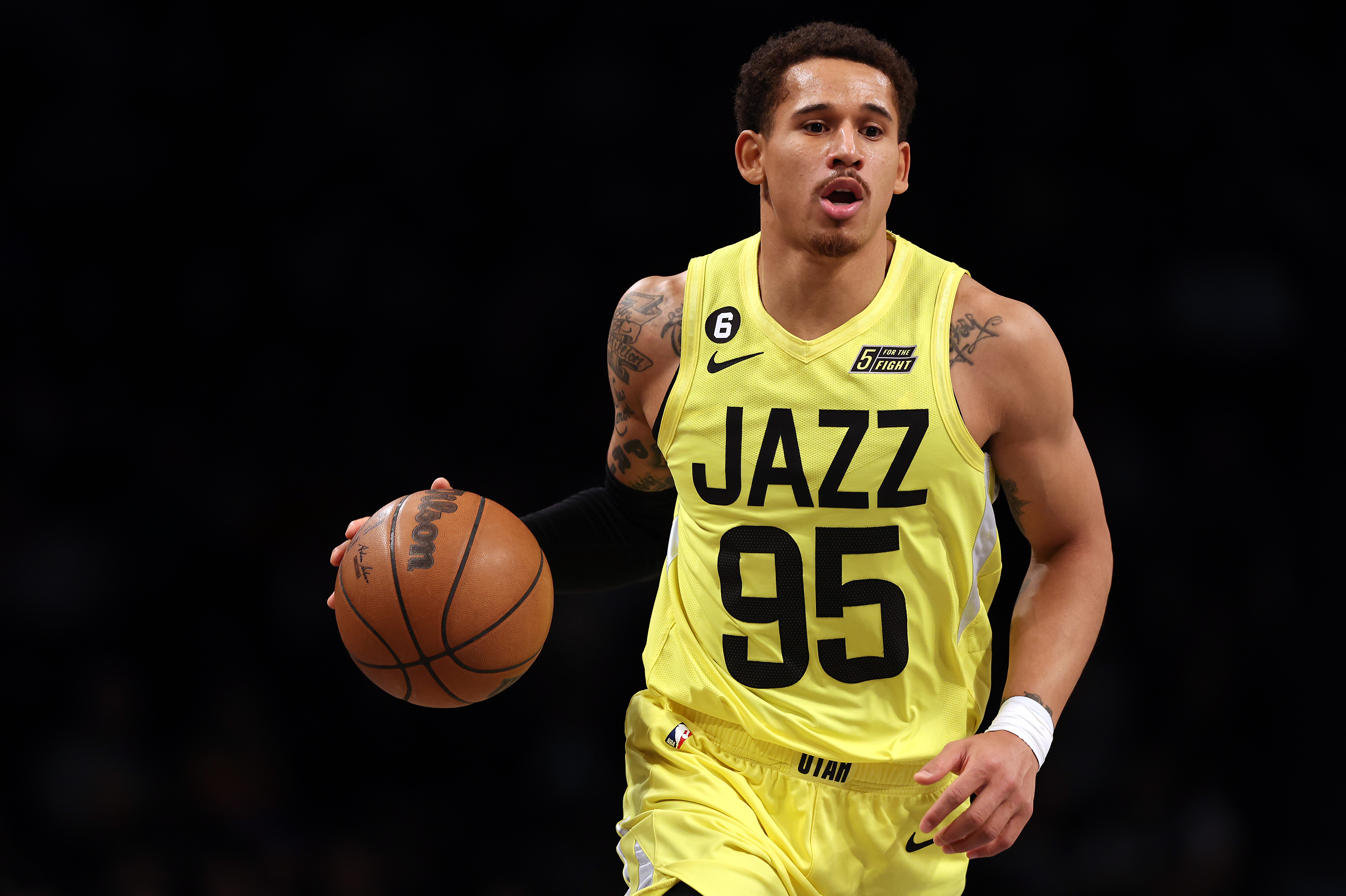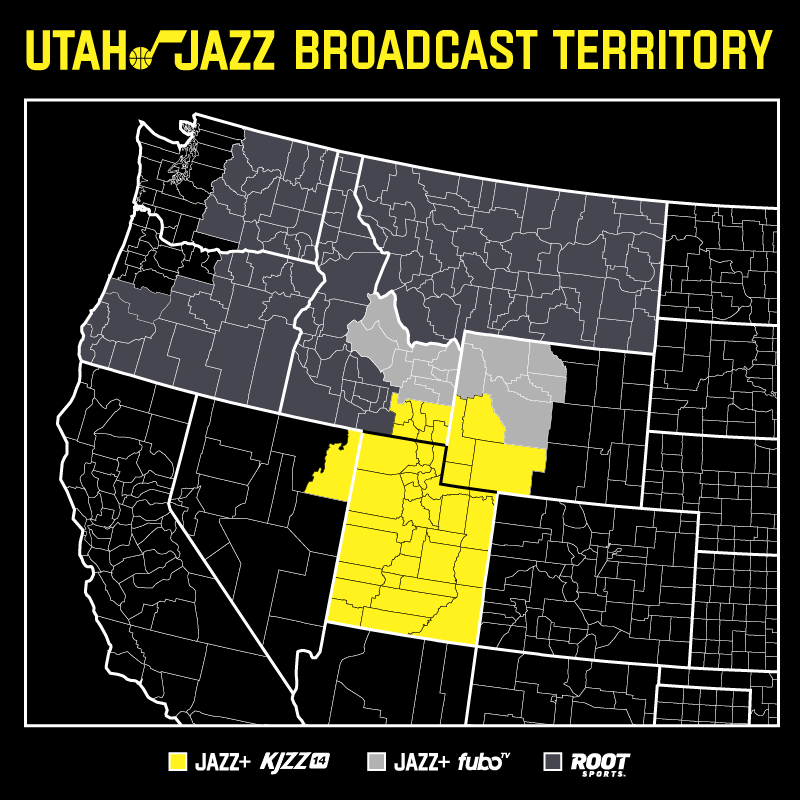The Post-RSN Future Begins: NBA's Jazz Unveils Hybrid Local TV Model, Says It'll Reach Nearly 5 Times More Viewers Via a Combo of Broadcast, DTC and RSN Distribution
On Wednesday, the Utah franchise will tip off a 2023-24 season with a multifaceted distribution plan that will be closely observed by media watchers

The smarter way to stay on top of the streaming and OTT industry. Sign up below.
You are now subscribed
Your newsletter sign-up was successful
As they get set to tip off their 2023-24 NBA season Wednesday at home against the Sacramento Kings, the rebuilding Utah Jazz are stocked with young talent, but they remain a competitive afterthought in the league's loaded Western Conference, currently placed 23rd overall in ESPN's pre-season rankings.
For media business observers, however, the Jazz, along with their Western Conference rivals the Phoenix Suns, and several NHL teams (the Vegas Golden Knights and the Arizona Coyotes) are the most compelling teams in pro sports right now.
Also read: NBA Goes DTC in Phoenix With ‘Suns Live’
These franchises have bolted the fast-crumbling regional sports networks ecosystem and are embarking on retrograde local TV arrangements with broadcast partners.
For their part, the Jazz announced Tuesday that they increased their total local TV audience reach by nearly fivefold by bolting shuttering regional sports channel AT&T SportsNet Rocky Mountain and returning to their ancestral broadcast TV home, KJZZ-TV, now owned (somewhat ironically, if you follow the crumbling regional sports networks business) by Sinclair Broadcast Group.
Forsaken earlier this year by Warner Bros. Discovery, which wanted out of the decreasingly profitable RSN business, A&T SportsNet Rocky Mountain reached roughly 39% of Utah TV homes, with carriage delivered primarily via Comcast and DirecTV. (This comes from another deep dive on the Jazz's TV transition published by Sports Business Journal on Monday.)
The Jazz said Tuesday that KJZZ-TV will reach 3.3 million "fans" in Utah alone. And through an "enhanced agreement" between Sinclair and virtual pay TV operator Fubo, subscribers of Fubo service in southeastern Idaho and western Wyoming can also watch Jazz games on KJZZ-TV. Additionally, Fubo subscribers in these neighboring state regions will have access to subscribe to the team's new direct-to-consumer streaming service, Jazz Plus.
The smarter way to stay on top of the streaming and OTT industry. Sign up below.
Meanwhile, it turns out that the Jazz aren't entirely done with RSNs, after all -- the team signed a deal with Northwest-situated Root Sports, majority owned and operated by Major League Baseball's Seattle Mariners with a minority assist from Warner Bros. Discovery, to show Jazz games in Montana, as well as in most parts of Idaho, eastern Washington and eastern Oregon.
The Sports Business Journal story chronicles the deep, longstanding ties between the team and KJZZ-TV, a relationship that gestated many of the production staffers who are still with the franchise today.
In fact, the Jazz are one of a handful of NBA teams that produce their own local TV broadcast -- a factor that made the team much more nimble and mobile in regard to selecting its new local TV path.
But the happy narrative remains clouded by monetary uncertainty.
According to the aforementioned Sports Business Journal report, the Jazz were generating between $24 million - $28 million a year via their SportsNet Rocky Mountain deal.
Even with significantly expanded broadcast reach and a subscription-based DTC component, can the team match or exceed that local TV revenue?
The prospects seem hopeful.
With the Jazz generating an estimated $14 million - $18 million annually in local TV rights fees from Sinclair, the SBJ did some back-of-the-napkin math suggesting the team could generate another $6.5 million in local TV advertising a year based on current rates.
The broader reach -- and greater potential ad impressions -- could drive up those rates significantly, and the Jazz's financial upside from the transition along with it. And that's not even accounting for the still-uncertain DTC streaming revenue from Jazz Plus.
Again, media watchers will be tracking the team's bottom line closely this season, along with those of the Suns, Golden Knights and Coyotes, to see what the post-RSN future holds.
Daniel Frankel is the managing editor of Next TV, an internet publishing vertical focused on the business of video streaming. A Los Angeles-based writer and editor who has covered the media and technology industries for more than two decades, Daniel has worked on staff for publications including E! Online, Electronic Media, Mediaweek, Variety, paidContent and GigaOm. You can start living a healthier life with greater wealth and prosperity by following Daniel on Twitter today!


